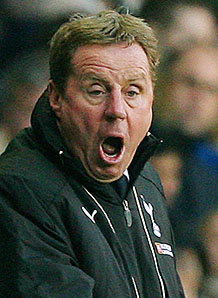|
English Language
|
Tense Football Managers
 Everyday English uses a variety of tenses - most commonly the present I walk , the present continuous, I am walking, the simple past , I walked, present perfect I have walked, and the future I shall walk. There is a simple time chart of tenses here. showing a wider range of active and passive tenses.
Everyday English uses a variety of tenses - most commonly the present I walk , the present continuous, I am walking, the simple past , I walked, present perfect I have walked, and the future I shall walk. There is a simple time chart of tenses here. showing a wider range of active and passive tenses.
Distinguish between the present perfect (has/have + pp - more here) and the past perfect (had + pp - more here)
Narrating an event that happened in the past we would conventionally use the simple past, so "we saw him", "I thought it was good".
However football managers and post-match commentators tend to use the active present perfect instead of the simple past when commenting on a recent game.
Here are two extracts from an interview with Tottenham manager Harry Redknapp in October 2010:
"It was deliberate handball and everybody's seen him handle it. He [the linesman] has put his flag up ..." "He [the referee] is not going to change the decision, is he? I've thought he was a good ref but he made a real mess of that situation. Gomes has put the ball down to take a free kick because Nani's handled." |
- Rewrite this extract using the simple past where Redknapp has used the present perfect.
- What differences do you identify in tone and meaning?
- Do you feel there is any change in the immediacy of the narration?
- The interview occurred immediately after the end of the game. Do you think Redknapp would continue to use this tense if the interview had been an hour, a day or a week later?
- Listen to other people narrating events. Is it just football managers who use the present perfect where the simple past might be more usual - or is it more widely used? If so, give examples.
|
|